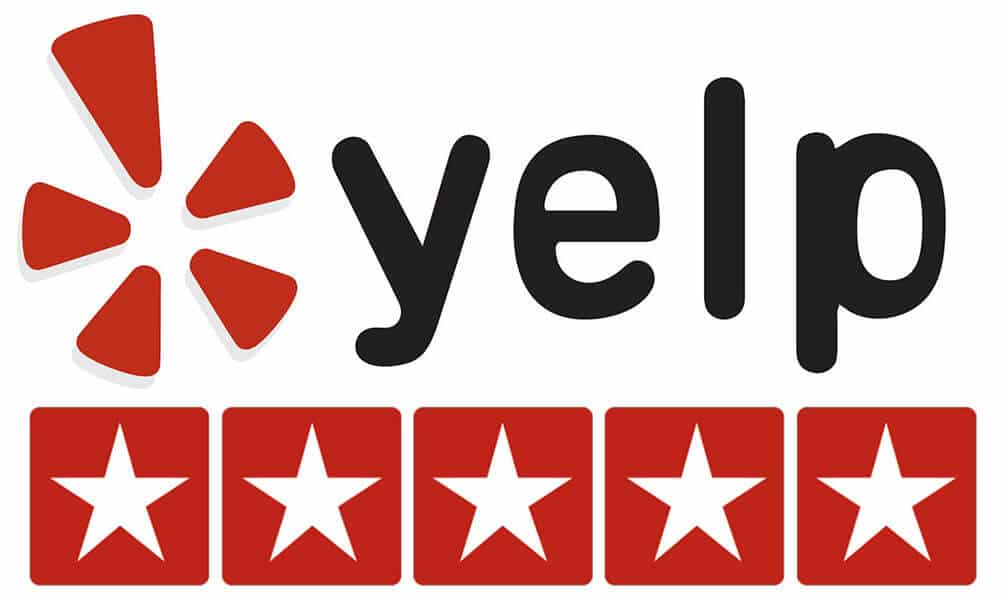Rental Property Insurance

If you’re an rental property owner, landlord, or an apartment building owner in MA, you need insurance that’s got your back for all your properties. Renting out your property can sometimes lead to unexpected issues and losses.
Your coverage can vary, but the right policy will handle things like tenant-caused property damage, lost rental income, and even accidents on your property. Whether you’ve got a multi-family home, single-family place, condo, or apartment, the right insurance makes sure you’re covered. At LoPriore Insurance, we’ve got you and your investment property protected.
Options Below
Massachusetts Rental Property Insurance
Quote Options
Request Rental Property Insurance Quote
For a rental property insurance quote, simply complete the form below. We will contact you to discuss coverage options and discounts.
Upload Your
Current Policy
Already have a policy? Easily upload your insurance policy so we can explore and compare true apple-to-apple options.
Talk To An
Agent
Need assistance or have questions? Our agents are happy to help. Please call to discuss your insurance needs.
Massachusetts Rental Property Insurance
Lopriore Insurance Agency

At LoPriore Insurance, we understand the unique challenges landlords and property owners encounter in the rental market. That’s why we’ve crafted specialized Rental Property Insurance solutions, tailored to shield your investments from the potential uncertainties of leasing. Our dedicated team is committed to designing coverage that aligns precisely with your requirements, ensuring the security of your properties and the growth of your real estate endeavors.
From safeguarding against tenant-related risks to protecting your rental income, our team of agents can help you purchase the right Rental Property Insurance for your property. LoPriore Insurance partners with with top insurance providers, we offer high-quality policies that help you to manage your properties.
Understanding the Importance of
Rental Property Insurance
Rental Property insurance from LoPriore provides comprehensive coverage to safeguard your investments as a landlord or property owner. With tailored protection against tenant-related risks and rental income loss, we ensure your peace of mind and the growth of your real estate ventures.
Rental property insurance or landlord insurance, is a must-have for anyone renting out a property. It safeguards your valuable investment against unforeseen damages, liability claims, and loss of rental income. With coverage tailored to rental properties, it's designed to give you peace of mind, knowing that your investment is protected.
- Protect Your Building: Things like storms, fires, or vandalism can cause damage to your property. Insurance helps cover the costs of repairs.
- Cover Legal Costs: If someone gets hurt at your property and blames you, they might take legal action. Insurance can help with the legal fees and any payout you might need to make.
- Keep Money Coming In: If something happens that means your tenants can't stay in the property (like a flood or fire), insurance can help replace the rent you'd lose while repairs are being made.
- Peace of Mind: Being a landlord can be stressful. Knowing that you have insurance to cover unexpected problems can make things a lot easier.
In short, rental property insurance helps keep you safe from unexpected costs and worries that come with renting out a property. It's like having a backup plan, so you're not caught off guard if something goes wrong.
- Individual Landlords: Whether you're renting out a single-family home or a multi-unit building, rental property insurance is essential for protecting your investment.
- Real Estate Investors: If you've invested in residential rental properties, safeguard your potential profits and assets with rental property insurance.
- Property Management Companies: Managing various properties exposes you to unique risks, making rental property insurance a vital part of your risk management strategy.
- Owners of Short-Term and Vacation Rentals: Specialized coverage options are available to protect properties rented out on a temporary or seasonal basis.
Who We Insure
Rental property insurance provides coverage for property owners who rent out their properties. It insures the property itself against damages from perils like fire and vandalism, while also offering liability coverage for injuries on the property and compensating for lost rental income due to covered events.
Securing rental property insurance is a paramount step for property owners who lease their properties. This indispensable coverage shields your rental property from a spectrum of risks, spanning unforeseen damages caused by events such as fires and vandalism. Moreover, it extends vital liability coverage, safeguarding against potential legal claims arising from accidents on your premises. Beyond fortifying your property, this insurance can also act as a safety net, reimbursing lost rental income due to covered events and fortifying your investment with comprehensive protection.
Obtaining landlord insurance is a crucial step in preparing for property rental. To determine your required coverage, you can consult our agents, request an online quote, or submit your current policy for evaluation. Whether you need guidance on policy types or have specific budget considerations, our experienced agents will assist in finding the ideal coverage. Additionally, we offer replacement cost calculations and help in assessing personal property coverage, ensuring your belongings are sufficiently protected.
Owning an apartment building involves a business venture that requires a range of commercial insurance policies to effectively manage financial risks. Essential coverage includes commercial property and liability insurance, while optional policies provide added protection. Whether you possess one or multiple properties, securing comprehensive coverage is vital to anticipate potential challenges like property damage that could disrupt your income. This insurance also offers business liability coverage for lawsuits or medical expenses from incidents on your property and business crime coverage to safeguard against theft or forgery by employees or third parties.
Types of Properties we Insure
Apartment Buildings
Multi Family
Mixed-Use Residential & Commercial Buildings
Vacation Home
Secondary Home
How much does Rental Property Insurance Cost?

The cost of Rental Property Insurance can vary widely depending on several factors. These factors include the location of your property, its size, the type of property (single-family home, multi-family unit, condo, etc.), the coverage limits you choose, and the specific risks associated with your rental property. Generally, policies with higher coverage limits and more comprehensive coverage options may come with a higher premium. Additionally, factors like the property’s condition, security features, and the local crime rate can influence the cost. On average, nationwide rental property insurance costs around $2,100 per year, which is generally 20-25% higher than homeowner’s insurance due to the unique risks associated with renting to tenants. To get an accurate estimate, it’s recommended to request quotes from reputable insurance providers, like LoPriore Insurance, who can take your property’s unique characteristics into account and provide a tailored cost estimate based on your needs.
Factors that Affect The Cost Of Rental Property Insurance
The cost of Rental Property Insurance is influenced by various factors, including the property’s location, type, size, and condition, as well as the coverage limits and specific risks associated with the property. Additionally, elements such as security features, local crime rates, and the property’s history can contribute to the final premium.
And Limits
Click On Item
How To Insure My Rental Property
To insure your property using rental property insurance, start by assessing your property’s specific needs and potential risks. Research reputable insurance providers like LoPriore Insurance that offer specialized coverage for rental properties. Request quotes, collaborate with the provider to customize your coverage, and carefully review the policy terms to ensure they align with your needs. Once you’re satisfied, finalize the policy by providing required information and payment. Keep the policy documentation secure and communicate pertinent details with property managers or tenants as necessary. Regularly review and adjust your coverage to accommodate changes in your property portfolio. With a trusted insurance provider, you can navigate the process confidently and secure tailored protection for your valuable property investment.

Tips for buying Rental Property Insurance
When insuring your rental properties, it’s essential to make informed choices to guarantee comprehensive protection for your investments. Here are some vital tips to keep in mind:
Protect Your Investments
Request A Rental Property Insurance Quote Today
Secure your rental property investments with comprehensive insurance coverage. From safeguarding against tenant-related risks to protecting your rental income, our specialized Rental Property Insurance provides peace of mind and supports your real estate endeavors. Get the protection your properties deserve with LoPriore Insurance.
Rental Property Insurance Coverage Options
Coverage Options
Our Rental Property Insurance provides a flexible array of coverage options designed to safeguard your real estate investments. Whether your property is vacant, rented, or under renovation, our tailored coverage shields against property damage, liability, and loss of rental income. While coverage details can differ between policies and providers, here are typical aspects often covered by our Rental Property Insurance:
Standard Coverages
Most Commonly Used
Coverage Extensions & Additional Coverages
A Commercial Package Policy (CPP) doesn’t have a fixed number of parts or sections, as it’s a customizable policy designed to meet the specific needs of a business. The sections of a CPP are determined by the individual coverages that a business chooses to include.
This provides coverage for lost income and extra expenses if the business is temporarily closed due to a covered loss.
Employee Dishonesty Coverage provides essential protection for employers against financial or property losses resulting from the fraudulent acts of employees. This coverage ensures that businesses are safeguarded against the potential financial impact of dishonest actions by their own employees.
Equipment Breakdown Insurance is a vital form of protection, often not included in standard commercial policies, which covers electronic losses, including telephone systems and computers. It provides coverage for both repair expenses and business interruptions resulting from the covered event, ensuring your business is safeguarded against unexpected equipment failures.
Ordinance or Law coverage comes into play when a significant portion of a commercial building is destroyed, and local regulations necessitate demolishing and rebuilding the damaged area to comply with current building codes. This coverage encompasses the cost of demolition and reconstruction, including the increased construction expenses required to adhere to building codes.
Ordinance or Law coverage comes into play when a significant portion of a commercial building is destroyed, and local regulations necessitate demolishing and rebuilding the damaged area to comply with current building codes. This coverage encompasses the cost of demolition and reconstruction, including the increased construction expenses required to adhere to building codes.
Ordinance or Law coverage comes into play when a significant portion of a commercial building is destroyed, and local regulations necessitate demolishing and rebuilding the damaged area to comply with current building codes. This coverage encompasses the cost of demolition and reconstruction, including the increased construction expenses required to adhere to building codes.
Ordinance or Law coverage comes into play when a significant portion of a commercial building is destroyed, and local regulations necessitate demolishing and rebuilding the damaged area to comply with current building codes. This coverage encompasses the cost of demolition and reconstruction, including the increased construction expenses required to adhere to building codes.
Ordinance or Law coverage comes into play when a significant portion of a commercial building is destroyed, and local regulations necessitate demolishing and rebuilding the damaged area to comply with current building codes. This coverage encompasses the cost of demolition and reconstruction, including the increased construction expenses required to adhere to building codes.
Available Insurance Policy Options
Already Have Insurance Upload Your Policy
Switching Your Insurance Made Easy!
Upload Your Current Insurance Policy to Compare & Save!
What’s The Advantage of Comparing My Insurance Policy?
When you send us a copy of your policy, our team has an opportunity to get a snapshot of your current insurance coverage, discounts, and added riders on your existing insurance policy.
Where Do I Find a Copy of My Insurance Policy?
Insurance companies send you a copy of your insurance policy annually and if any changes to your policy have been made during the year. However, if you are unable to locate your policy, your insurance company or insurance agent should be able to send you a duplicate copy via email, fax, or mail.
What Happens When You Upload Your Policy?
Once we receive your uploaded policy one of our team members begins reviewing your policy. We will then contact you to discuss your coverage options. Every insurance company has different underwriting guidelines and offers different coverages and rates. Be advised while we try our best to quote with the information provided it still may be necessary to obtain additional information from you to prepare the most accurate rate.
Extra Security, Extra Peace of Mind
Request a complimentary quote for Rental Property Insurance from LoPriore Insurance and fortify your real estate investments against uncertainties. Our seasoned team will provide personalized coverage choices, guaranteeing thorough protection for your valuable rental properties throughout various scenarios, including leasing, maintenance, and more.
Quote Request Form
Rental Property Insurance FAQs
While both policies have similarities, a renter’s insurance policy has features designed to protect your property while tenants are living there. Rental insurance insures the value of the dwelling in the same way a homeowners insurance policy does. It also has additional liability coverage for your tenants and coverage for damages by non-owners.
Like homeowners insurance, you’re not required by law to purchase rental property insurance in Massachusetts. However, if the property isn’t paid for, your mortgage may require it. While rental insurance isn’t required by law, it’s a good way to avoid significant debt or total loss in the event of a disaster.
As a landlord, you may need to leave items on the property for routine maintenance. Common possessions covered by the policy include lawnmowers, garden equipment, tools, and other maintenance equipment. However, your rental property insurance does not protect the personal property of your tenants.
Yes. Your insurance premiums may be tax-deductible because your rental property is a business investment. Some exclusions apply, so it’s important to discuss your personal situation with your tax advisor.
Structures attached to the main dwelling, like the porch or deck, are automatically covered along with the building. Further, policies can include other unattached buildings, like a garden shed or garage.
Landlord Insurance FAQs
The limit of coverage can be found within the insurance coverage section of your policy.
No. Landlord insurance covers the dwelling, attached structures, and personal property used to service the rental. Your tenants can purchase a renter’s policy to protect their possessions.
While laws don’t require tenants to purchase renters insurance, it is within your rights to add this requirement to the rental agreement. A landlord can also require a specific amount of insurance, proof of coverage, and require the tenant to keep the policy active for the duration of the lease.
The cost of landlord insurance varies due to several factors including:
• The type and size of the construction
• Age and condition of the building
• How many rental units you have
• Whether you have a swimming pool
• Whether you allow smokers to rent from you
• Whether you have burglar alarms
• The presence of installed fire sprinklers
• Whether your electrical wiring is up to current code
Commercial landlord insurance provides additional protection to cover the liability risks associated with renting your building to a third party business. Additionally, you’re covered for the costs associated with lost income due to the interruption of business for a covered claim.
Apartment Building Insurance FAQs
The are some common are some risks that may occur within an apartment building complex.
• Severe weather or fire
• Theft or vandalism
• Liability for third party injuries
• Loss of rental income
• Discrimination lawsuits
• Invading the right to privacy.
A variety of elements are used to figure out the individual cost of an apartment insurance policy. You may need to provide this information to your agent to help determine the cost.
• The age and location of your building
• Extra features like a swimming pool, fitness center, or clubhouse
• The type of building and construction
• The presence of up-to-date safety and security systems
The amount of your deductible is an important feature of your insurance policy. A per building deductible describes a set amount that you will pay for each building in the event of a covered loss. A per occurrence deductible allows you to pay one fee for all buildings affected. It’s important to discuss these options with your agent to decide which is best for your personal needs.
Earthquakes and floods aren’t typically covered by apartment building insurance. However, if this is coverage you need, you can get additional policies that provide protection for these events.
The two policies provide similar types of coverage, but apartment building insurance adds additional coverage because you have multiple tenants on the property. An apartment building complex requires protection that covers employees, common areas, and additional security and liability concerns.
Still HAve Questions? Get Answers




